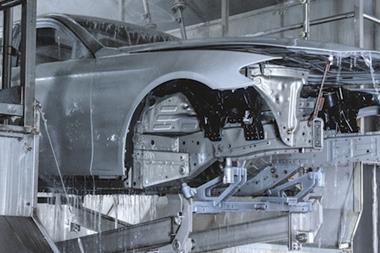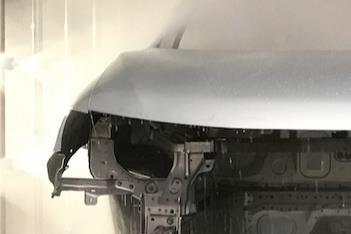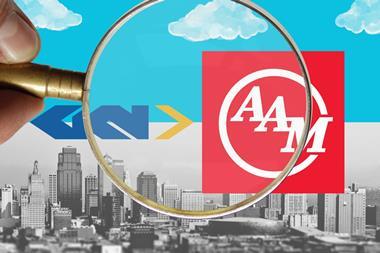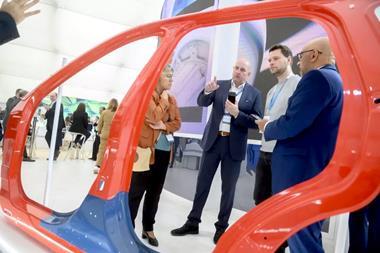Across measures of quality, performance and cost Chemetall discusses how reactive oils can offer advantages in the cold-drawn, precision steel tube production process
 High-strength precision steel tubes are the material of choice when components must withstand high levels of stress. These steel tubes not only ensure the longevity of vehicles but their lightweight form significantly increases safety. However, high-strength steels used for precision parts are difficult to cold-form.
High-strength precision steel tubes are the material of choice when components must withstand high levels of stress. These steel tubes not only ensure the longevity of vehicles but their lightweight form significantly increases safety. However, high-strength steels used for precision parts are difficult to cold-form.
Precision tubes are used in a wide variety of car body components – from airbag cylinders to frame spacers, shock absorbers or seat adjustment – and stand for safety and higher crash test ratings. Although there is high demand for these products, the production of high-quality precision steel tubes for the automotive industry, with perfect inner and outer surfaces, is under increasing cost pressure. The mechanical properties for these products are important. It is desirable to be able to manufacture precision tubing without drawing agents, and to deliver a surface that can be easily cleaned and painted. Steel components are still the means of choice when it comes to stability and durability in vehicles.
At the same time, official environmental requirements are increasing and must be taken into account during production.

Advantages of cold formed precision tubes
To provide quality standards of precision steel tubes, an exact surface finish is required. For this reason, cold-drawing of precision steel tubes is achieved according to DIN EN 10305-1 (seamless pre-drawn tubes) and DIN EN 10305-2 (welded pre-drawn tubes). The surface of the steel tube must be thoroughly prepared in a number of steps. The complex pre-treatment of the tube is necessary to meet the high quality standards required by the automotive industry and includes heat and chemical surface treatments.
Chemetall, the surface treatment global business unit of BASF’s coatings division, manufactures high-efficient lubricants and salt carriers for quality metal forming processes.
“Cold-drawn precision steel tubes meet the high strength and geometry requirements of modern automotive applications. Companies that take advantage of this technology are ahead of the competition”, says Martin Orben, Global Segment Manager Cold Forming at Chemetall in Singapore. “Lower process costs, energy savings and tooling costs are advantages that have a direct positive effect on the subsequent production steps.”
Precision tubes are surface treated in order to remove oxidic deposits, grease, soils and particles. Subsequent steps include the application of lubricant carrier layers in a controlled manner. The combination of the carrier layer and the lubricant must be sufficient to ensure there is no contact between the tube surface and the forming tool and offer good lubrication during the cold forming operation. The task of lubrication is to minimise friction, thus saving power and energy. The relationship between friction and wear is complex. Friction is the prerequisite for wear, which must be avoided to achieve a long tool life.
Satisfying the producer and customer
From a producer’s point of view, there is a demand for increased productivity and reduced production costs from the highly competitive automotive market. This includes the adaptation of the surface treatment system to the drawing environment. For example: increased drawing speeds, greater cross-sectional reduction, variable steel quality and drawing practices.
The requirements of the end users of precision tubes are also changing – there is a high demand for very low-residue tube surfaces with a bright appearance and good cleanability. The surface roughness (defined as Ra value) must also be very low. Increasingly, the precision tubes are being left exposed and therefore they must exhibit a good surface reproducibility, dimensional accuracy and provide a good optical impression.
Chemetall provides Gardolube RS reactive oils, which allow both the producer and their customers to satisfy these requirements. Gardolube RS simultaneously forms an inorganic carrier layer and a highly resilient lubricant layer on the pipe tube. By using reactive oils, the pre-treatment steps can be significantly reduced. However, the tube surfaces must be bare and dry for the reactive oil to be effective. The tubes, after annealing in a protective gas atmosphere of approximately 920°C, must be cooled to room temperature before they are immersed into the reactive oil bath. After a certain treatment time at temperatures of approximately 25-65°C, an inorganic lubricant carrier and lubricant layer tailored to the degree of deformation is formed.
Reactive Oils: How do they work?
The term reactive oil refers to the reaction which occurs during the contact of the steel surface with the lubricant. The reactive oils contain, among other things, acid phosphate esters which release iron from the surface in the first reaction, i.e. the surface is slightly pickled. A part of the dissolved iron is converted into a lubricant carrier layer based on an iron oxide/iron phosphate layer, which has good adhesion to the substrate. The layer weight of this carrier layer can range from 0.5 g/m² to 5 g/m². The control of the carrier layer thickness and the lubricant film depends on several parameters such as acidity, water content, temperature, treatment time and activation state of the steel surface. In contrast to conventional zinc phosphate coatings, the carrier layer formed by the reactive oil is significantly thinner and not crystalline, but amorphous. This results in a high degree of surface smoothness.
In certain cases, it is possible to carry out multiple passes without an intermediate annealing operation after a short intermediate immersion. Steel tubes drawn with reactive oils show a bright and shiny surface when annealed in an inert gas atmosphere at 920 °Celsius.

Endless possibilities
The range of Chemetall’s Gardolube RS reactive oils extend from those that work at room temperature to those that need to be heated to 65°C. They are used by dipping with treatment times of between three and 15 minutes. These oils usually form an oily lubricant film, but selected ones are designed for non-dripping requirements and form a more greasy film. This is a benefit in plants where there are not enough draining racks for the treated tubes. The Gardolube RS reactive oils, which can be applied at room temperature, are used for both external and internal lubrication. They are mainly used for coil-drawing and for straight drawing of very long pipes which are too big for immersion in a bath.
When the decision is made to use reactive oil, it is important to remember that the steel grades used in a welding tube mill can differ significantly from those used in a seamless tube mill.
Performance highlights
It is a well held opinion that the most effective way to produce high-quality precision steel tubes is to immerse them in a reactive drawing oil after heat treatment in a protective atmosphere. Chemetall’s Gardolube RS oils are used in tube mills around the world for the cold-drawing of both welded and seamless steel tubes. The use of Gardolube RS reactive oils has the potential to deliver considerable cost savings when compared to aqueous surface treatment systems. At the same time, the Gardolube RS reactive oils help the precision tube producers to meet forming requirements in terms of cross-sectional reduction and drawing speed, as well as providing a smooth, uniform drawing surface.
The application possibilities for cold-finished precision steel tubes are diverse and range from installation in the automotive sector to agricultural and construction machinery, the energy industry and heating and air-conditioning technology.
“Gardolube RS products make a valuable contribution to securing the global competitiveness of precision tube manufacturers. Our customers benefit from energy efficiency and reduced process costs while enhancing their performance with Chemetall’s lubricants,” concludes Orben.





































